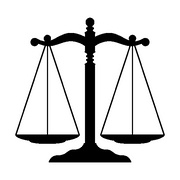
Filing for bankruptcy will help you get a handle on out-of-control debt and lay the groundwork for a more secure financial future. But it's important to understand that when it comes to bankruptcy, you have options. Most filers have a choice between Chapter 7 and Chapter 13, but each one works differently and offers distinct advantages. Bankruptcy attorney William A. McWhorter in Pell City, AL, explains some of the key differences between these two types of filings.
How Debt Is Discharged
One of the biggest differences between Chapter 7 and Chapter 13 bankruptcy is how the debt is ultimately discharged. Chapter 7 is a debt elimination, in which the courts wipe out most types of unsecured debt. Chapter 13 bankruptcy laws, on the other hand, offer more of a debt consolidation program, allowing filers to repay what they owe by combining their debts into one monthly payment that is then repaid over the long term.
Who Can Benefit
 What type of bankruptcy you file often depends on your income level and ability to realistically repay any outstanding balances, and a bankruptcy attorney can help you better understand which option may be right for you. If a filer has limited or no income, then Chapter 7 is usually the smarter choice as it involves no repayment of unsecured debts. Chapter 13 is better suited to individuals who have enough income to meet the demands of a monthly payment plan. Also, Chapter 13 can be a good option for those who are facing foreclosure; a bankruptcy attorney may be able to help you hang onto your home so long as both current and past-due mortgage payments can be met every month.
What type of bankruptcy you file often depends on your income level and ability to realistically repay any outstanding balances, and a bankruptcy attorney can help you better understand which option may be right for you. If a filer has limited or no income, then Chapter 7 is usually the smarter choice as it involves no repayment of unsecured debts. Chapter 13 is better suited to individuals who have enough income to meet the demands of a monthly payment plan. Also, Chapter 13 can be a good option for those who are facing foreclosure; a bankruptcy attorney may be able to help you hang onto your home so long as both current and past-due mortgage payments can be met every month.
How Long the Process Takes
Chapter 7 is ideal for those who want a relatively quick resolution to unmanageable debt. The typical Chapter 7 bankruptcy takes about three to four months from initial filing to the final discharge. Chapter 13, however, is more of a commitment. Most approved Chapter 13 plans are repaid over the course of three years, though, in some cases, this could be extended to as much as five years.
Bankruptcy attorney William A. McWhorter will work with you to thoroughly explore both bankruptcy options to find the one that is right for you. For more than 20 years, he has been representing clients throughout St. Clair County, and he offers legal counsel in family law cases, criminal defense, and wills and estates. Call (205) 338-4411 or visit Attorney McWhorter's website to schedule your appointment.
About the Business
Have a question? Ask the experts!
Send your question

